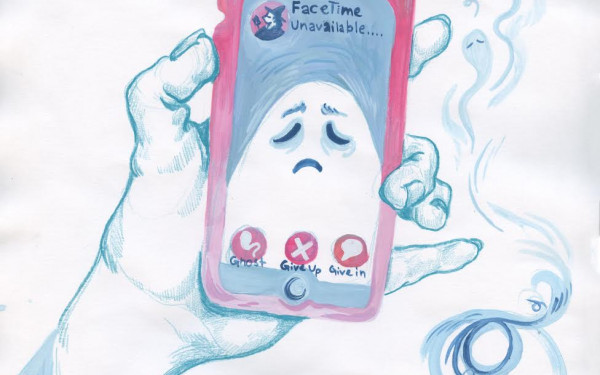Body positivity is for every body
Concordia women of all sizes feel alienated by a movement meant for inclusivity
With social media apps fueling the pressures many feel daily, it can be hard to feel beautiful no matter your body type.
To combat this, many young influencers are trying to cast aside the stereotypical and outdated ideal body type. Body positivity advocates can be found practically anywhere, yet some are claiming the body positive movement isn’t for everyone. While there’s continued support for influencers to promote self-love, plus-sized creators say those who simply cannot hide away their insecurities should be prioritized.
Soraya Dergham, an international business major at Concordia, regularly shares body-positive messages on TikTok. In order to really represent all bodies, Derham said, bigger people need to be able to stand out. “There’s always going to be some negative experiences that smaller, more standard bodies won’t experience, that bigger people experience daily,” she said.
Dergham has dealt with her share of internet trolls, including feeling oppressed by the very app she is trying to gain a following on. “TikTok took down many of my videos, including my most viewed/liked which is definitely frustrating. It’s exhausting to see skinny girls being able to post freely but as soon as it’s a bigger girl, TikTok feels the need to apply community guidelines,” Dergham said in relation to a video of her in a swimsuit being taken down. She feels this type of censorship fuels the argument that only a specific type of body is allowed to project positivity on the app.
Deira Athalie is a biology major at Concordia and treasurer of the university’s feminist club, Making HERstory. Athalie feels the appreciation for all body types should be encouraged, but there needs to be recognition for plus-sized women.
“No matter what a person looks like or what a person feels like, that person is and remains a human being that is valid and whose body should be normalized and accepted,” she said. “I remember growing up and having no idea that people who had my skin colour, my features, my size, my overall looks were happy.”
The media portrays a very narrow idea of what beauty looks like. Even with companies trying to be more inclusive, in most cases, the message still is not there. “This idea that if a character is fat then he or she obviously should love to eat and hate sports [...] should be completely eradicated from our society's mentality, ” Athalie added.
Marisa Vertolli, a human environment major at Concordia has been thin her whole life. She has had her own struggles and insecurities. She has a hard time gaining weight, which can be frustrating. Growing up, she constantly heard that she was too skinny, that she looked anorexic, and needed to eat more.
However, she states she is not persecuted as frequently as she would be if she was plus-sized. “You are allowed to have your insecurities but at the same time there are bigger issues at hand, where bigger woman go out and are judged more simply for being a certain size,” she said.
“I think that some images portray unrealistic goals or unrealistic images of what bodies should look like, which reinforces the susceptibility to eating disorders and disordered eating,” said Dr. Sylvia Santosa—associate professor in Concordia’s health, kinesiology, and applied physiology department.
Santosa’s research focuses on how fat accumulates in the body. She suggests there is not a concrete answer as to why certain individuals store fat in one area compared to another. Some aspects of weight distribution are entirely out of an individuals’ control. To combat negative body images, Santosa suggests reflecting on the aspects you can control.
“There are a lot of psychological aspects in terms of body image. Be realistic in terms of expectations and then surround yourself with people who are not so set on having a specific type of body,” she said. “Build yourself a positive environment that is more accepting of all shapes and sizes.”
Plus-sized influencers on TikTok, like Dergham, claim the app treats their content unfairly. Dergham has had multiple videos taken off the app. The only message Tiktok provided was that the videos violated their community guidelines. The videos in question are what Dergham describes as videos where she shows more skin in order to be body positive. These videos also receive the most engagement—such as new followers and supportive comments, she said.
After one of her popular videos got taken down, Dergham asked TikTok to put the video back up—to which they refused and took down another video where she complains about the situation. “I think that, often, smaller girls will be seen as confident and strong for posting their bodies and being proud of it. On the other hand, plus-sized and bigger girls are called provocative for doing the same thing,” she said.







